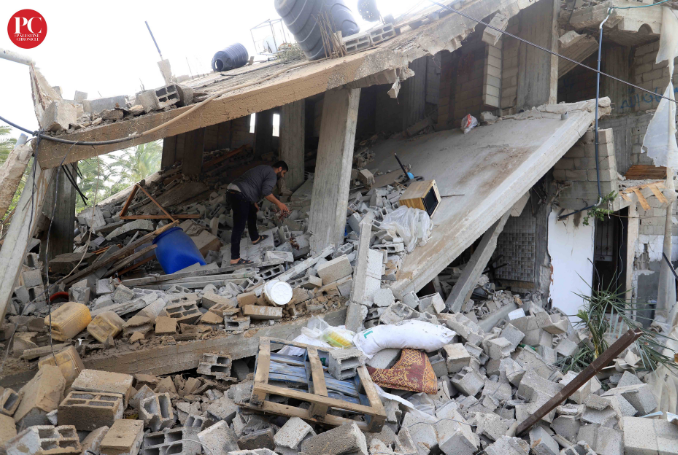
A few hours after midnight, on Tuesday, May 9, Israel launched what was meant to be a quick war on Gaza.
Right-wing Israeli Prime Minister Benjamin Netanyahu and his Defense Minister Yoav Gallant took charge of the battle from the very start, dubbing it “Shield and Arrow”.
Palestinian Resistance which showed extraordinary strength during the war, dubbed it ‘Avenging the Free’.
Why did Netanyahu Go War?
Analysts suggest that Netanyahu had two major aims in this war: increasing his popularity among ordinary Israelis who have been leading mass protests against the Israeli leader and his government since early January; and convincing far-right Israeli National Security Minister Itamar Ben-Gvir to rejoin the government’s votes at the Israeli Knesset, or parliament.
The buzzword in all of this has been ‘deterrence’ – as in restoring Israel’s military superiority over Palestinian Resistance in Gaza.
Did Israel Succeed?
“Israel’s attempt at restoring ‘deterrence’ in Gaza backfired badly,” Palestinian journalist and editor of The Palestine Chronicle Ramzy Baroud said.
“The way that the Palestinian Resistance reacted this time around through a unified position, and calculated retaliations, suggest a degree of maturity and strength, unprecedented in the history of all Palestinian Resistance groups,” Baroud added.
Indeed, just seconds before an Egyptian-mediated ceasefire went into effect at 10 pm (Palestine time) on Saturday, May 13, short and long-range Palestinian missiles were reportedly fired toward Israel.
LIVE BLOG: Israeli War on Gaza Continues, Raids on West Bank
What Was the Cost of the Israeli War?
Israel did what it does best in these situations. It killed 33 Palestinians and wounded 150 more. Some of those targeted by the hundreds of Israeli attacks on the besieged Gaza Strip were military commanders in the Islamic Jihad in Palestine (IJP) movement. However, the majority of the dead and wounded were civilians.
One Israeli was also killed and others were wounded as a result of Palestinian rockets.
Why Was This a Different War?
The Palestinian operations were different, this time around. Though the Resistance was largely sustained by IJP alone, the battle itself was managed by the Joint Operations Room of the Resistance. Practically, this means that the IJP operated as if a branch of a larger Palestinian Resistance network, as opposed to a fully independent group.
“If the IJP alone has managed to create a stalemate and to balance out the political impact of the Israeli war on Gaza, imagine what all Palestinian groups would have been able to do if they collectively joined the battle,” Baroud said.
In fact, the prospect of Hamas joining the fight seemed a terrifying one, as expressed by Israeli politicians and media commentators on various Israeli TV channels during the four-day war.
What Did the Ceasefire Agreement Entail?
The ceasefire agreement was written in such a way that would allow the Palestinian Resistance to claim that Israel has committed to freezing the assassination policy, while allowing Israel to also claim the opposite.
Here is the exact translation of the ceasefire text, written originally in Arabic:
“Based on the agreement between the two sides, Egypt announces a ceasefire between the Palestinian and Israeli side, exactly at 10 pm on the night of May 13, 2023. And based on this, (both sides) agree to commit to a ceasefire that ends the targeting of civilians, the destruction of homes, and also the targeting of individuals. And that is to begin at the moment of the start of the ceasefire. Egypt calls on both sides to abide by the agreement and will work to follow up with both sides.”
(The Palestine Chronicle)





